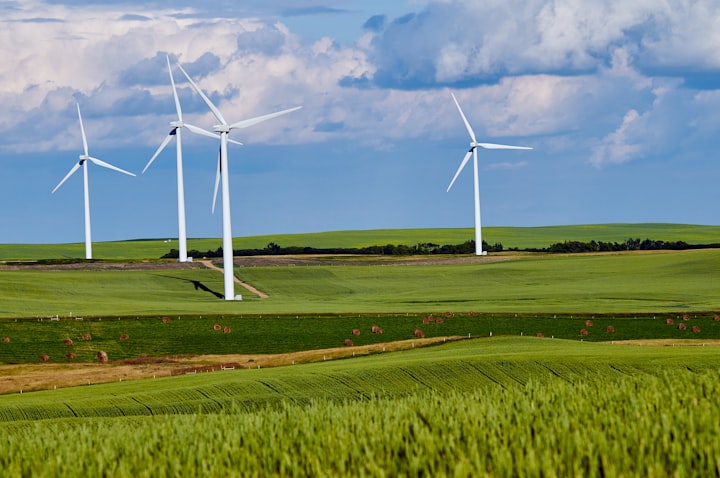Sustainability for the Future
"Sustainability: Meeting the Needs of Today Without Compromising the Ability of Future Generations to Meet Their Own Needs."

Sustainability is the concept of meeting the needs of the present without compromising the ability of future generations to meet their own needs. It is about balancing economic, social, and environmental concerns in a way that ensures a healthy and prosperous future for all. Sustainability has become an increasingly important issue as the world's population grows and the demand for resources increases.
Environmental sustainability is one of the key components of sustainability. It involves using natural resources in a way that does not deplete or damage them, and that allows for their renewal over time. This includes reducing greenhouse gas emissions, preserving biodiversity, and minimizing waste and pollution. Social sustainability is also important, as it ensures that everyone has access to basic needs such as food, water, and shelter, and that human rights are protected. Economic sustainability is also a critical component of sustainability, as it ensures that businesses and economies can thrive in the long term without degrading the environment or exploiting people.
To achieve sustainability, we need to make changes in how we live, work, and consume. This can include using renewable energy sources such as solar and wind power, adopting sustainable farming practices, reducing our use of single-use plastics, and supporting sustainable businesses. We can also promote sustainability by advocating for policies that support the environment, such as renewable energy incentives and carbon taxes, and by voting for leaders who prioritize sustainability.
Sustainability is a global issue, and it requires cooperation and action from individuals, businesses, and governments around the world. By working together to address the challenges of sustainability, we can create a better future for ourselves and for generations to come.

Sustainability is a complex and multi-faceted concept that refers to the ability of human society to meet its needs without compromising the ability of future generations to meet their own needs. It involves finding a balance between economic, social, and environmental concerns to ensure that resources are used efficiently and equitably.
At its core, sustainability is about ensuring that we do not use up resources faster than they can be replenished, and that we do not damage the natural systems that support life on Earth. This means promoting renewable energy, reducing waste and pollution, protecting biodiversity, and managing natural resources in a way that supports long-term human well-being.
There are many different dimensions to sustainability, including environmental sustainability, social sustainability, and economic sustainability. Environmental sustainability focuses on protecting natural resources and ecosystems, and ensuring that they are used in a way that supports the long-term health of the planet. Social sustainability, on the other hand, focuses on promoting human well-being and equity, and ensuring that social systems are just and equitable for all. Economic sustainability focuses on ensuring that economic systems are efficient, stable, and able to meet the needs of society over the long-term.
Achieving sustainability is a complex and ongoing process that requires the cooperation of individuals, businesses, governments, and other organizations. It involves making difficult choices and trade-offs, and requires a willingness to prioritize the long-term health of the planet and future generations over short-term gains.

Some of the key strategies for promoting sustainability include promoting renewable energy, reducing waste and pollution, protecting biodiversity, and managing natural resources in a way that supports long-term human well-being. It also involves promoting sustainable agriculture and food systems, ensuring that communities have access to clean water and air, and reducing the use of harmful chemicals and materials.
In conclusion, sustainability is a critical concept for the future of human society and the planet as a whole. It requires a holistic approach that takes into account the economic, social, and environmental dimensions of sustainability, and a willingness to make difficult choices and trade-offs to ensure that resources are used efficiently and equitably. By working together to promote sustainability, we can create a brighter future for ourselves and future generations.
About the Creator
Matt Murdock
I'm writing to raise awareness, create understanding, and initiate change and write about topics such as new technologies, sustainable lifestyles, renewable energy, and more. I believe in the power of words...






Comments
There are no comments for this story
Be the first to respond and start the conversation.